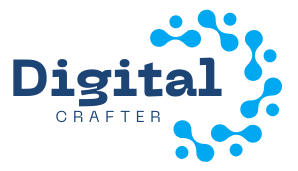In a digital landscape where artificial intelligence (AI) is transforming the way we build websites, choosing the right Content Management System (CMS) is more critical than ever. Whether your project incorporates machine learning tools, real-time personalization, or chatbot integration, your CMS needs to support these advanced functionalities seamlessly. But with so many options available, how do you know which one is best suited for your AI-powered website?
Understanding Your Needs
Before diving into the CMS selection process, it’s essential to evaluate your business goals, technical requirements, and target audience. Are you building a data-heavy AI application? Do you need real-time analytics displayed through dashboards? Understanding the scope of your AI functionalities will help narrow down CMS candidates.
Some key questions to ask include:
- Will the CMS need to handle large datasets or real-time updates?
- How important are scalability and cloud hosting?
- Do you require built-in support for AI plugins and APIs?
Open-Source vs. Proprietary CMS
CMS platforms fall into two major categories: open-source and proprietary (or commercial). Each has its strengths and limitations when it comes to integrating AI.
- Open-Source CMS: Platforms like WordPress, Drupal, and Joomla offer wide-ranging customizability and large communities. Developers have full access to the source code, making it easier to integrate AI tools and tailor the website to unique needs.
- Proprietary CMS: Solutions like Adobe Experience Manager or Sitecore come with robust support, enterprise-level security, and AI-powered features already built-in, but they can be costly.
If your project demands frequent updates and extensive AI customization, an open-source CMS might be more appropriate. On the other hand, if you’re seeking out-of-the-box AI integrations with professional support, a proprietary CMS could be a smarter choice.
Key Features to Look For in an AI-Compatible CMS
The following are must-have capabilities when selecting a CMS to power your AI-based website:
- API-First Architecture: Enables seamless integration with AI services like IBM Watson, TensorFlow, or OpenAI.
- Modular Structure: Encourages scalability, which is crucial for expanding AI capabilities as your platform grows.
- Real-Time Data Processing: Ensures timely updates and personalized content delivery for each user.
- Cloud Support: Facilitates secure data storage and fast content delivery for AI models that depend on high compute power.
- Strong Security Framework: Protects user privacy and ensures ethical handling of AI-generated data and insights.

Popular CMS Platforms for AI-Powered Websites
Based on their adaptability, plugin ecosystems, and AI compatibility, here are a few CMS platforms frequently chosen for AI-based websites:
- WordPress: With plugins like MyCurator, Jetpack AI, and voice interaction tools, WordPress remains a top pick for small to medium AI-powered websites.
- Drupal: Known for its robust security and scalability, Drupal works well for enterprise-grade AI websites needing complex workflows and integrations.
- Webflow: Although not open-source, Webflow offers visual development tools and customizable CMS features that support AI integrations via APIs.
- Contentful: A headless CMS that supports an API-first approach, ideal for developers looking to feed content into AI-powered front-end systems.

Integration with AI Tools and Services
The real power of your CMS will hinge on how well it integrates with AI technologies. Look for CMS platforms that can seamlessly plug into:
- Natural Language Processing (NLP) engines
- Machine learning libraries and frameworks
- Data visualization dashboards
- AI-powered search and recommendation engines
- Voice command and conversation interfaces
Having APIs and plugin support makes this integration process smoother and more scalable over time.
Ease of Use vs. Flexibility
Another important consideration is how easy it is to use the CMS in practice. While some platforms offer drag-and-drop interfaces and pre-built AI features, others offer more flexibility at the cost of a steeper learning curve. Determine the technical skills of your team and decide accordingly.
Final Thoughts
Choosing the right CMS for your AI-based website is both a strategic and technical decision. The ideal CMS should not only align with your project goals but also be flexible enough to grow alongside the latest advancements in artificial intelligence. Whether you’re building an intelligent chatbot platform, an AI-generated content hub, or a data-driven dashboard, selecting the proper CMS will set the foundation for long-term success.

